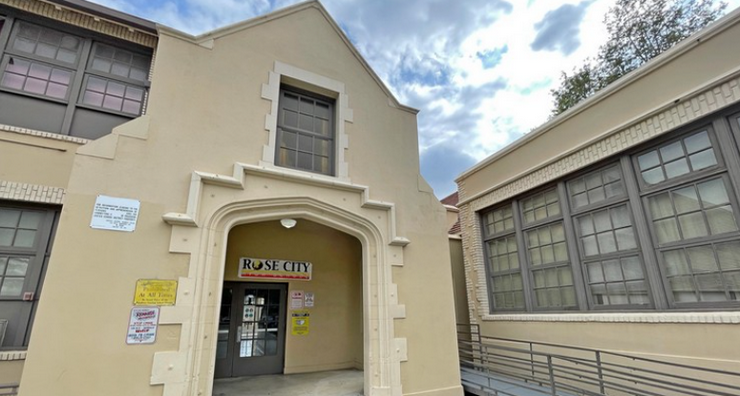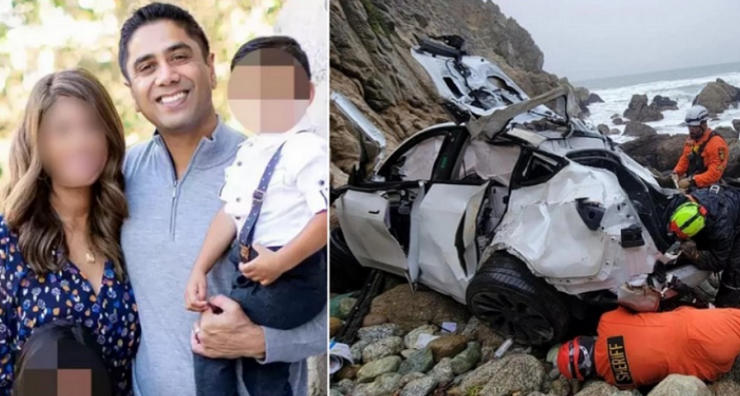With a speech considered so culturally significant that the venerable literary magazine The New Yorker published it in full, Dr. Atul Gawande addressed Caltech’s June 10 commencement ceremony by warning that scientific thinking is under siege by pseudoscientists and “alarming trends” reveal increasing distrust of the scientific community by Americans.
Gawande is a surgeon and widely respected writer and journalist. Caltech’s 122nd Commencement exercises took place on Beckman Mall last week.
In the speech, Gawande warned about the proliferation of “pseudoscientists” who deploy false analogies and other logical fallacies just to challenge scientific consensus and advance their own interests.
And yet, he said, true scientists can still defeat bad science and once more help build trust in science.
Gawande lamented that the world is “experiencing a significant decline in trust in scientific authorities.”
Citing U.S. survey data from sociologist Gordon Gauchat in 1974 to 2010, Gawande said there are “deeply alarming trends” about how Americans show a growing distrust in science.
“Despite increasing education levels, the public’s trust in the scientific community has been decreasing,” he said. “This is particularly true among conservatives, even educated conservatives. In 1974, conservatives with college degrees had the highest level of trust in science and the scientific community. Today, they have the lowest.”
Gawande said this decreasing level of trust in science is what pseudoscientists have been exploiting “to advance their own argument that scientific consensus emerges from a conspiracy to suppress dissenting views,” and to discredit entire fields of science.
He however believes the scientific community can still defend science as a more valid approach to explaining the world.
“So, then, what is a science believer to do? Is the future just an unending battle of warring claims? Not necessarily. Emerging from the findings was also evidence that suggested how you might build trust in science,” Gawande said. “Rebutting bad science may not be effective, but asserting the true facts of good science is. And including the narrative that explains them is even better. You don’t focus on what’s wrong with the vaccine myths, for instance. Instead, you point out: giving children vaccines has proved far safer than not. How do we know? Because of a massive body of evidence, including the fact that we’ve tried the alternate experiment before. Between 1989 and 1991, vaccination among poor urban children in the U.S. dropped. And the result was fifty-five thousand cases of measles and a hundred and twenty-three deaths.”
He then challenged Caltech graduates to help “reclaim the territory of trust” by explaining science as real truth-seeking – the effort, he said, not of a single person but of a group of people pursuing ideas with curiosity, inquisitiveness, openness, and discipline.
“Today, you become part of the scientific community, arguably the most powerful collective enterprise in human history. In doing so, you also inherit a role in explaining it and helping it reclaim territory of trust at a time when that territory has been shrinking. In my clinic and my work in public health, I regularly encounter people who are deeply skeptical of even the most basic knowledge established by what journalists label “mainstream” science (as if the other thing is anything like science)—whether it’s facts about physiology, nutrition, disease, medicines, you name it. The doubting is usually among my most, not least, educated patients. Education may expose people to science, but it has a countervailing effect as well, leading people to be more individualistic and ideological.”
Gawande’s entire commencement speech at Caltech is published in full in The New Yorker, where he had been a staff writer since 1998, focusing on major issues facing medicine and public health in the 21st century.
To read the speech, visit www.newyorker.com/news/news-desk/the-mistrust-of-science.
Gawande practices general and endocrine surgery at Brigham and Women’s Hospital in Boston and is a professor in the Department of Health Policy and Management at the Harvard T.H. Chan School of Public Health, and he is the Samuel O. Thier Professor of Surgery at Harvard Medical School.
He is also executive director of Ariadne Labs, a joint center for health systems innovation between Brigham and Women’s Hospital and the Harvard T. H Chan School of Public Health. He is also the chairman of Lifebox, a nonprofit organization created with the goal of making surgery safer globally—especially in low-resource countries—through the distribution of appropriate technologies.
According to the New York Times, his influential 2009 article in The New Yorker, “The Cost Conundrum,” which investigated rising health care costs in America, was discussed extensively by President Obama and his aides.
In addition to his magazine writing, Gawande is the author of four New York Times best-sellers: “Complications: A Surgeon’s Notes on an Imperfect Science,” “Better,” “The Checklist Manifesto,” and, most recently, “Being Mortal: Medicine and What Matters in the End.”
Gawande earned a bachelor’s degree in biology and political science from Stanford University in 1987. A Rhodes scholar, Gawande earned a master’s degree in philosophy, politics and economics from Balliol College, Oxford in 1989. In 1995, he graduated with a Doctor of Medicine from Harvard Medical School, and in 1999 he earned a Master of Public Health from the Harvard School of Public Health.
He is the winner of two National Magazine Awards, Academy Health’s Impact Award for highest research impact on healthcare, a MacArthur Fellowship, and the Lewis Thomas Prize for writing about science.














 0 comments
0 comments


